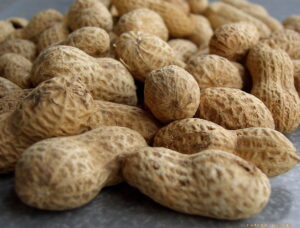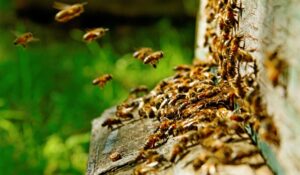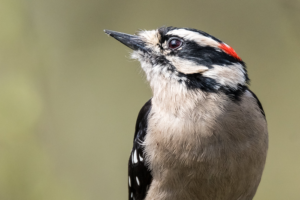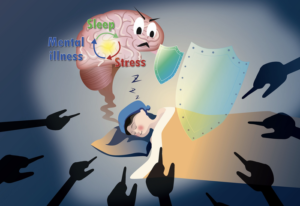
Vaishnavi Sridhar completed her PhD in Cell and Developmental Biology from the University of British Columbia. She loves discussing science, taking nature walks, and cooking in her free time.

Eating Peanuts for Peanut Allergy Protection: A New Study
Can you prevent a peanut allergy? Scientists found that introducing peanuts into the diet during infancy protected from allergic reactions well into adolescence. By Vaishnavi Sridhar Many foods are labeled as “made in a peanut-free facility” or “nut-free.” This is ...

Bioluminescence: Why Dazzling Blue Lights Appear in Water
That trip to the beach might come with a show: bioluminescence makes sparks of blue light that sometimes flash in water at night. Read on to learn how it happens. By Vaishnavi Sridhar Many of us enjoy watching twinkling stars ...

Bee Behavior Affected by Pesticides and Temperature
Climate change and pesticides spell double trouble for bee behavior. Researchers in a recent study find that pesticide risk to bees varies depending on the temperature. By Vaishnavi Sridhar Every spring and throughout the summer, gardens around the world are ...

How Brown Algae Mucus Combats Carbon Dioxide
Mucus produced by brown algae may be the key to protecting the ocean, as a new study uncovers how carbon dioxide gets captured and converted. By Vaishnavi Sridhar Years ago when Columbus and his group were on their first voyage, ...

Yeast, A Poem
Scientist, artist: Science inspires art in this poem about the properties of yeast and its similarities to human cells. By Vaishnavi Sridhar Our bodies are made up of cells. Cells are made of different parts called organelles that communicate with ...

Diet-Resistant Women Respond Well to Exercise
Exercise may stimulate changes to the body at a cellular level, leading to new treatment possibilities for diet-resistant women with obesity. By Vaishnavi Sridhar Right from childhood, eating healthy and being active is often emphasized. Similar messages may be repeated ...

Is Drumming Like Singing? A Focus on Woodpeckers
Woodpeckers may not sing out melodies, but a new study hones in on how their drumming may be similar to birdsong on a neural level. By Vaishnavi Sridhar Have you experienced the wonderful sounds made by various birds? For example, ...

Moths Know Where to Go: A Look at Moth Migration
Moth migration may be guided by an internal compass to find the way, according to a new study that tracked flight paths of individual moths. By Vaishnavi Sridhar Just like we may take an annual vacation, every year countless animals, ...

Stress-Induced Sleep: A Built-In Snooze Button
Scientists explored how stress can induce sleep in mice and uncovered the brain cells involved in the process. By Vaishnavi Sridhar From an early age, we hear about the importance of adequate sleep; we are told that we must sleep ...
